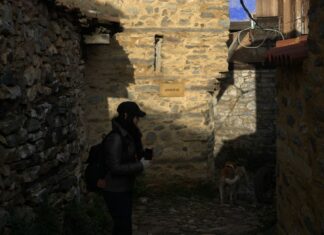Pergamum The Religious City
In the King James Bible, this city is called Pergamos, but in Turkey, it is called Pergamum, and that is the correct spelling.
Period of...
Pergamum’s Great Library and Temples
Pergamum was not only famous for its great temples, but it also had the greatest library in the pagan world. The library had over...
The Temple and Houses in Sardis
The Temple of Artemis
The temple of Artemis in Sardis was one of the most impressive buildings in the city. It was likely started in...
Synagogue and Gymnasium-Bathhouse in Sardis
Overview of the Site
In Sardis, there are remains of a synagogue and a gymnasium-bathhouse that were partly rebuilt. These buildings date back to the...
The Marketplace in Ephesus
When the apostle John lived in Ephesus, the city had two main areas of activity. One was a government center on the hill to...
Ephesus A Great Ancient City
Ephesus was a big and important city in ancient times, with about 200,000 people. An old writing found there called it "a most illustrious...
The Seven Churches of Asia
The Book of Revelation in the Bible is addressed to seven churches. All of these churches were located in Asia Minor, a region that...
A Day in the Serbian Parliament
Prime Minister’s Aspirations
M. Stoyanovitch clasped his hands together and sighed. He spoke about having a majority of twenty-four or thirty, calling it a “small...
Observations from the Serbian Parliament
Notable Speeches
During my time in the Serbian Parliament, I witnessed two notable speeches. The first was by M. Nicholas Pashitch, the Leader of the...














